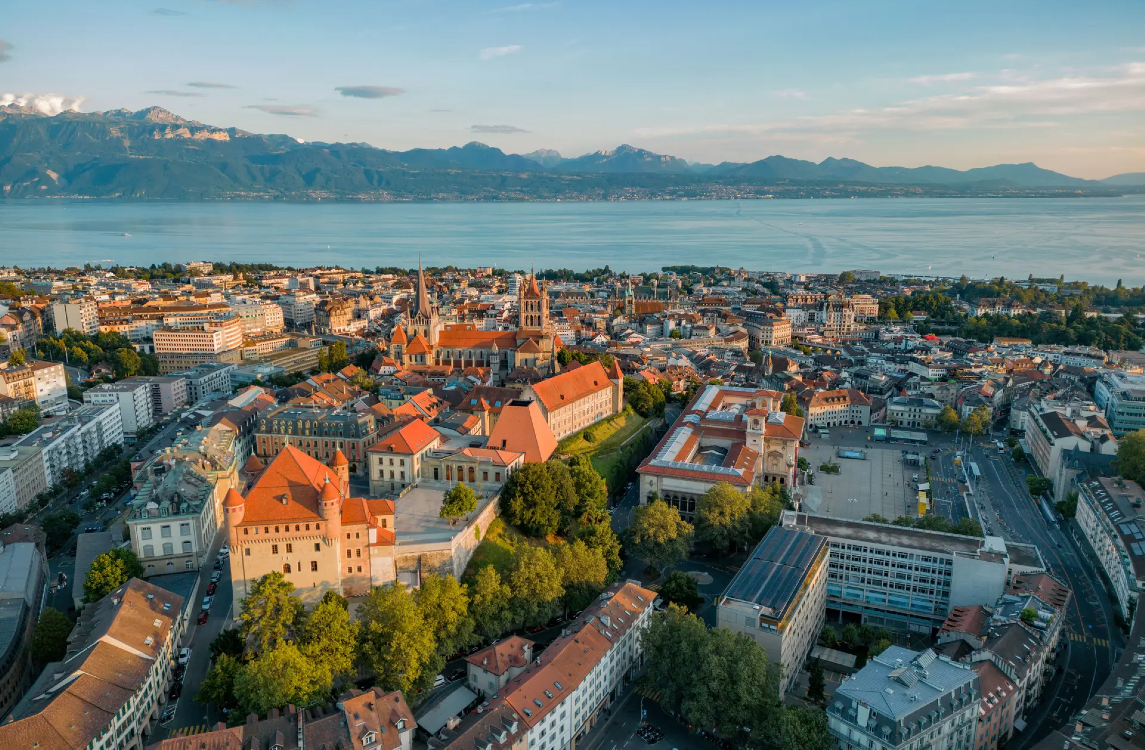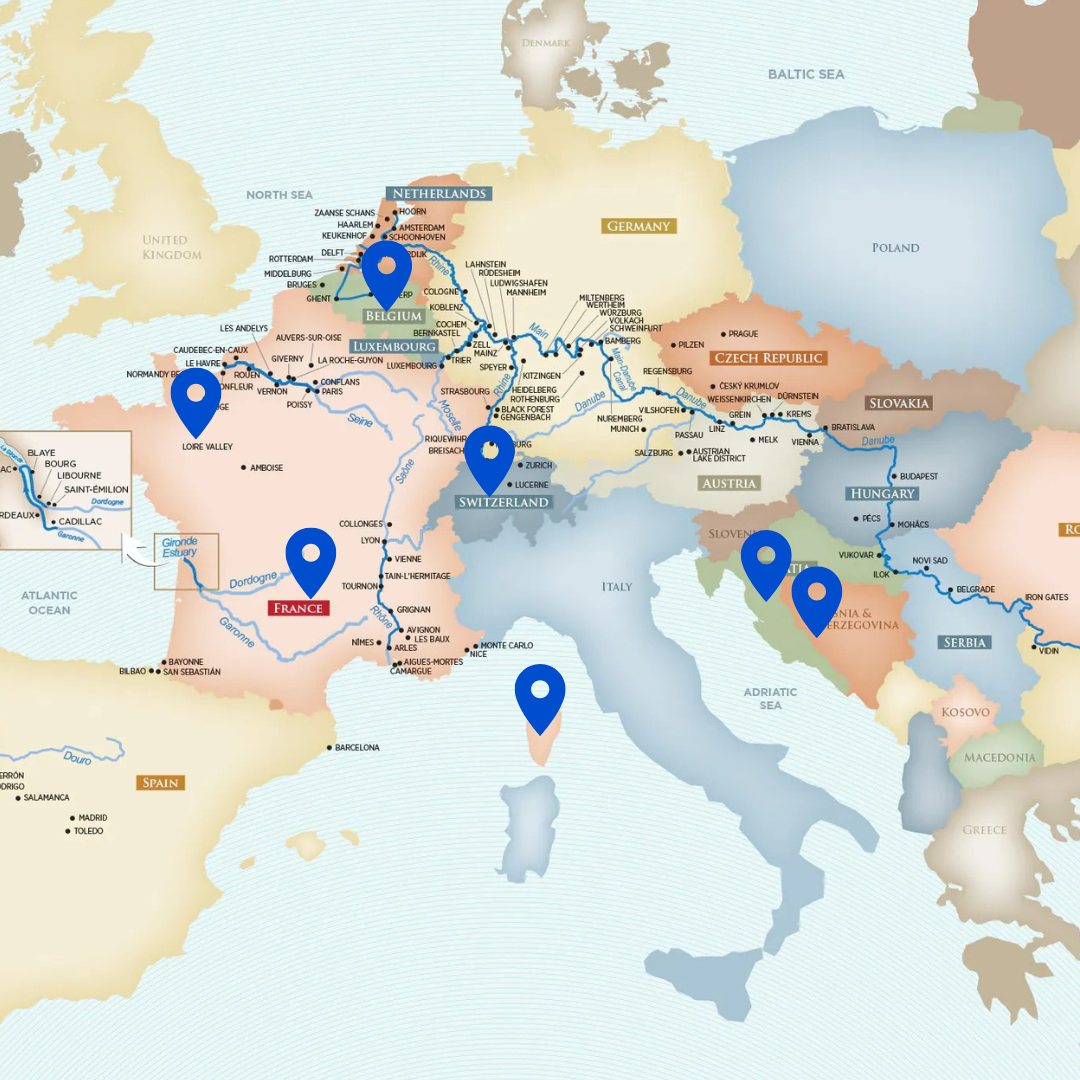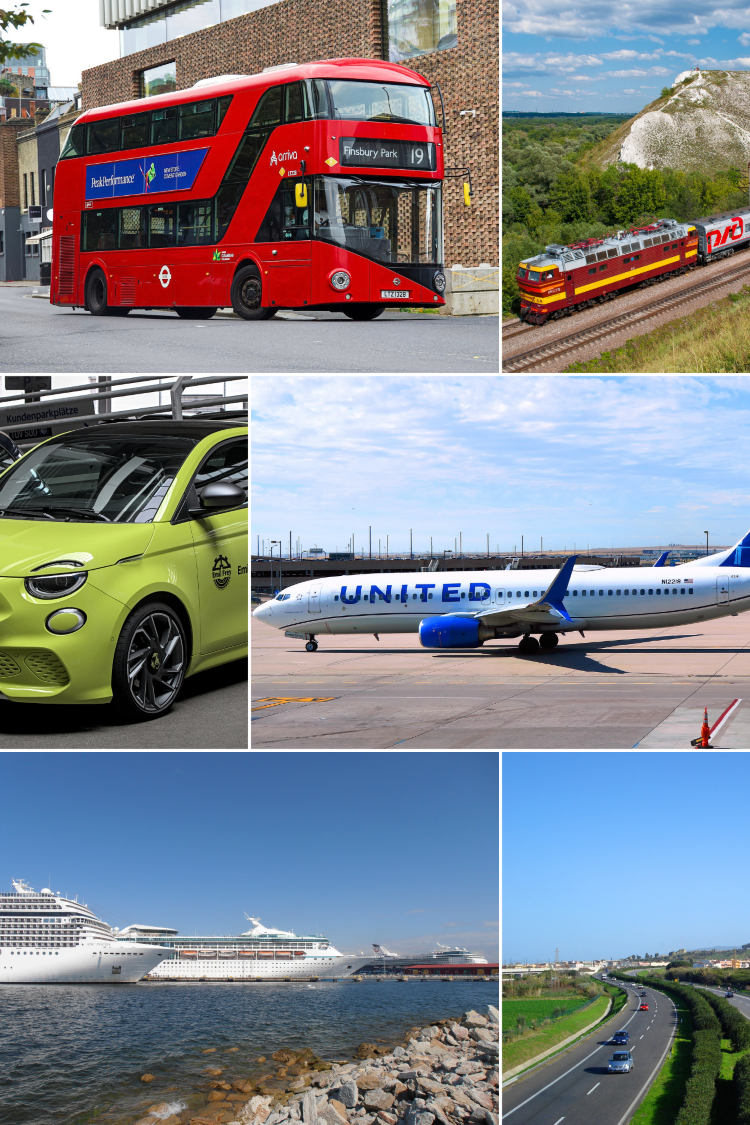The 8-Step Guide to Smart Travel Planning

The travel bug has bitten, hasn't it? That irresistible urge to explore new horizons, taste different flavors, and immerse yourself in cultures beyond your own. It's an exciting feeling, full of promise and the thrill of the unknown. But before you pack your bags and head for the airport, take a deep breath. While spontaneity can be fun, truly rewarding and safe travel requires thoughtful planning.
Think of travel planning as the foundation upon which your entire adventure is built. A strong foundation ensures a smoother, more enjoyable journey, allowing you to focus on making memories instead of dealing with preventable problems. This isn't about stifling your adventurous spirit; it's about empowering it with preparation and foresight. So, let's dive into the absolutely necessary steps to properly, safely, and responsibly plan your next getaway.
Step 1: Define Your Travel Dreams (and Realities)
Every great trip starts with an idea. What kind of experience are you craving? Relaxation on a sun-drenched beach? An adrenaline-fueled trek through the mountains? Immersion in a vibrant city's culture and history?

Start by brainstorming. Let your imagination wander. Where do you see yourself? What activities excite you? Don't censor yourself at this stage; just list all the possibilities.
Once you have a few initial ideas, it's time to bring in the element of reality. Consider these practical factors:
- Time: How much time do you realistically have for this trip? Be honest about vacation days, work commitments, and other responsibilities. A weekend getaway requires a different approach than a month-long expedition.
- Budget: This is a crucial factor. How much can you realistically afford to spend on this trip? Be comprehensive, thinking about transportation, accommodation, food, activities, visas, insurance, and those tempting souvenirs. Having a clear budget from the outset will help you narrow down your destination options and make informed decisions.
- Travel Style: What kind of traveler are you? Do you prefer luxurious comfort, budget-friendly hostels, or something in between? Are you looking for a jam-packed itinerary or a more relaxed pace? Understanding your travel style will influence your choices in accommodation, transportation, and activities.
- Travel Companions (or Solo Adventure): Are you traveling alone, with a partner, with family, or with friends? The dynamics of your travel group will impact destination choices, activity levels, and even the type of accommodation you select. Be sure to have open conversations with your travel companions about their preferences and expectations.
By considering these factors, you can start to narrow down your options and develop a more concrete vision for your trip.
Step 2: Choose Your Destination Wisely

With a better understanding of your travel dreams and realities, it's time to focus on specific destinations. This is where research comes in. Don't just rely on beautiful photos you've seen online. Dig deeper:
- Safety and Security: Research the safety situation in your potential destinations. Are there any travel advisories or warnings issued by your government? Be aware of common scams or potential risks and take necessary precautions.
- Local Laws and Customs: Familiarize yourself with the local laws and customs of your chosen destination. What is considered polite or impolite? Are there any specific dress codes or social norms you should be aware of? Respecting local culture is essential for a positive travel experience.
- Health Considerations: Check for any required or recommended vaccinations for your destination. Research potential health risks and take necessary preventative measures. It's also wise to know the location of medical facilities in the area you'll be visiting.
- Visa and Entry Requirements: If you're traveling internationally, ensure you understand the visa and entry requirements for your destination. Apply for any necessary visas well in advance, as processing times can vary. Check the validity of your passport and make sure it meets the requirements of the countries you'll be visiting.
- Best Time to Visit: Research the best time to visit your chosen destination based on factors like weather, crowds, and prices. Traveling during the off-season can sometimes offer better deals and fewer tourists, but be aware of potential drawbacks like adverse weather conditions or limited availability of attractions.
Thorough research will help you make an informed decision and choose a destination that aligns with your interests, budget, and safety considerations.
Step 3: Plan Your Transportation
Getting to and around your destination is a critical part of your travel plan. Consider the following:
- Getting There: If you're flying, research different airlines and compare prices. Book your flights in advance, especially during peak travel seasons, to secure better deals. Consider factors like layovers, baggage allowances, and flight times. For shorter distances, explore options like trains, buses, or driving.
- Local Transportation: Once you arrive at your destination, how will you get around? Research public transportation options like buses, subways, and trams. Consider whether renting a car is necessary or feasible, taking into account factors like driving conditions, parking availability, and insurance. Ride-sharing services are also an option in many cities. Familiarize yourself with the local transportation system before you arrive.

Book your transportation in advance whenever possible, especially for long-distance travel or during peak seasons. Keep copies of your tickets and booking confirmations easily accessible, both electronically and in print.
Step 4: Secure Your Accommodation

Where you stay can significantly impact your travel experience. Consider your budget and travel style when choosing accommodation:
- Hotels: Offer a range of amenities and services but can be more expensive.
- Hostels: A budget-friendly option, often with shared rooms and communal areas, great for meeting other travelers.
- Airbnb or Vacation Rentals: Can offer more space and privacy, often with kitchen facilities, ideal for families or longer stays.
- Guesthouses or Bed and Breakfasts: Provide a more intimate and local experience.
Research different accommodation options in your chosen location, read reviews from other travelers, and compare prices. Book your accommodation in advance, especially during popular travel periods. Pay attention to the location of your accommodation and its proximity to attractions, transportation, and amenities. Confirm your booking details and keep a record of your reservation.
Step 5: Craft Your Itinerary (Flexibly)

While spontaneity can add excitement to travel, having a basic itinerary can help you make the most of your time and ensure you don't miss out on things you really want to see or do.
- Identify Key Attractions and Activities: Research the must-see sights and experiences in your chosen destination. Prioritize what's most important to you.
- Map Out Your Days: Create a rough outline of how you'll spend each day, including planned activities, travel time between locations, and meal breaks. Be realistic about how much you can fit into a day.
- Leave Room for Flexibility: Don't overschedule your itinerary. Allow for downtime, unexpected discoveries, and changes in plans. Some of the best travel moments happen when you deviate from the script.
- Book Tours and Activities in Advance: For popular attractions or tours, it's often advisable to book in advance to avoid disappointment, especially during peak season.
Your itinerary should serve as a guide, not a rigid set of rules. Be open to adjusting it based on your interests, energy levels, and unexpected opportunities that may arise.
Step 6: Sort Out the Essentials
This step involves taking care of the practical details that are crucial for a smooth trip:
- Travel Insurance: This is non-negotiable. Comprehensive travel insurance can protect you against unexpected events like medical emergencies, trip cancellations, lost luggage, and theft. Research different policies and choose one that suits your needs and destination.
- Travel Documents: Ensure your passport is valid for at least six months beyond your intended stay. Make copies of your passport, visa (if required), driver's license, flight tickets, and accommodation confirmations. Keep one set of copies separate from the originals and consider storing digital copies securely online.
- Money and Finances: Decide how you will manage your money while traveling. Consider a mix of cash, credit cards, and debit cards. Inform your bank and credit card companies about your travel dates to avoid any issues with your cards being blocked. Research the local currency and exchange rates.
- Health and Medications: Pack any necessary prescription medications in their original packaging, along with a copy of your prescription. Include a basic first-aid kit with essentials like pain relievers, bandages, and antiseptic wipes. If you have any pre-existing medical conditions, consult your doctor before traveling and get any necessary advice or documentation.
- Communication: Consider how you will stay connected while traveling. Will you use your existing mobile plan, purchase a local SIM card, or rely on Wi-Fi? Ensure your phone is unlocked if you plan to use a local SIM card. Download any essential translation apps or offline maps.

Taking care of these essentials will provide peace of mind and help you navigate any unforeseen circumstances.
Step 7: Pack Smart, Not Just Light
Packing efficiently can make a big difference in your travel experience.
- Check Luggage Restrictions: Be aware of the baggage allowances of your airline or other transportation providers.
- Make a Packing List: Before you start packing, create a list of everything you think you'll need. This will help you avoid overpacking or forgetting essential items.
- Pack Versatile Clothing: Choose clothing items that can be mixed and matched to create different outfits. Consider the climate and activities you have planned.
- Roll Your Clothes: This can save space and help prevent wrinkles.
- Use Packing Cubes: These can help you organize your suitcase and compress your clothes.
- Don't Forget Essentials: Include items like chargers, adapters (if needed), comfortable walking shoes, sunscreen, insect repellent, and any personal toiletries.
Pack thoughtfully and prioritize items that you will definitely need. Remember, you can often purchase things you might have forgotten at your destination.
Step 8: Embrace Responsible Travel

Responsible travel is about being mindful of the impact your trip has on the environment, local communities, and cultural heritage.
- Respect Local Culture: Learn about and respect the customs, traditions, and values of the places you visit. Dress modestly when appropriate, ask for permission before taking photos of people, and be mindful of noise levels in residential areas.
- Support Local Economies: Choose locally owned businesses, restaurants, and accommodations whenever possible. Buy souvenirs from local artisans and avoid purchasing counterfeit goods.
- Minimize Your Environmental Impact: Be mindful of your waste. Avoid single-use plastics, recycle when possible, and dispose of trash responsibly. Conserve water and energy in your accommodation. Consider your transportation choices and opt for more sustainable options when available.
- Be a Respectful Tourist: Be patient, courteous, and open-minded. Learn a few basic phrases in the local language. Engage with locals respectfully and be willing to learn from their perspectives.
By traveling responsibly, you can contribute to the well-being of the places you visit and ensure that these destinations can be enjoyed by future generations.
Bon Voyage!
Planning your trip might seem like a lot of work, but remember that each step brings you closer to your adventure. By taking the time to plan properly, safely, and responsibly, you're setting yourself up for a more enjoyable, enriching, and memorable travel experience. So, take a deep breath, embrace the process, and get ready to explore the world with confidence and wisdom. Happy travels!
Frequently Asked Questions (FAQ)
- How far in advance should I start planning a trip? The ideal timeframe depends on the complexity and length of your trip, as well as the destination. For popular destinations or travel during peak season, it's generally recommended to start planning at least 3-6 months in advance, especially for booking flights and accommodation. For shorter or less complex trips, a few months or even weeks might suffice.
- What's the first thing I should do when planning a trip? The very first step should be to define your travel dreams and realities. This involves brainstorming your desired experience, considering your available time and budget, and thinking about your travel style and companions.
- Is travel insurance really necessary? Absolutely. Travel insurance is essential for protecting yourself against unexpected events like medical emergencies, trip cancellations, lost luggage, and theft. The cost of insurance is relatively small compared to the potential financial burden of these unforeseen circumstances.
- How can I find the best deals on flights and accommodation? Be flexible with your travel dates and destinations. Use flight and hotel comparison websites to compare prices from different providers. Consider flying on weekdays or during the off-season, as these times often offer lower prices. Booking in advance can also sometimes lead to better deals.
- What should I do if something goes wrong during my trip? Stay calm and assess the situation. If it's a medical emergency, seek immediate medical attention. If your luggage is lost or stolen, file a report with the relevant authorities (airline, police). Contact your travel insurance provider for assistance with covered events. Have copies of important documents readily available.
- How can I be a more responsible traveler? Be mindful of local customs and traditions. Support local businesses. Minimize your environmental impact by reducing waste and conserving resources. Be respectful of the places you visit and the people you encounter.
- What are some essential items to pack? This depends on your destination and the activities you have planned. However, some generally essential items include your passport and visa (if required), travel insurance details, flight and accommodation confirmations, necessary medications, comfortable walking shoes, appropriate clothing for the climate, a basic first-aid kit, chargers and adapters, and any personal toiletries.
- Should I book tours and activities in advance? For popular attractions or tours, especially during peak season, it's highly recommended to book in advance to guarantee your spot and potentially save time and money. However, leave some flexibility in your itinerary for spontaneous activities.
About the Writer: Tom Mendez, the passionate travel curator behind Mendez & Associates Travel LLC (The Bespoked Traveler), believes that travel should be nothing short of extraordinary. With a knack for travel insights and a deep understanding of what makes a journey truly special, he'll craft personalized itineraries that turn travel dreams into unforgettable realities. Ready to transform your travel aspirations into your next great adventure? Book a complimentary consultation with Tom today via this booking page and let the journey begin.


